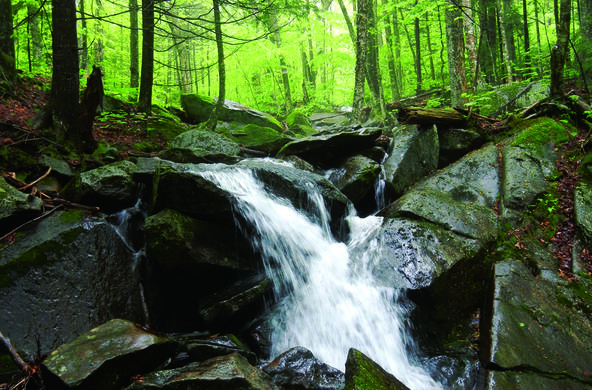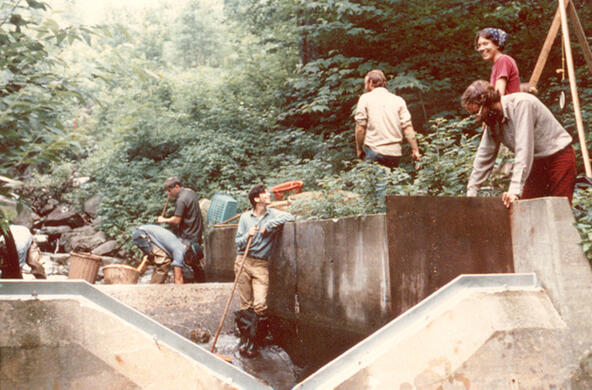Scientist responsible for groundbreaking acid rain research observes editing wars in Wikipedia’s scientific categories
If you type anything scientific into Google, the chances are that Wikipedia will be prominently placed in the search results. The fact that other encyclopedias don't get a look in is a sign of just how popular the site is, with crowd-sourced wisdom trusted ahead of the knowledge of select specialists.
That it should be so high in the ranking isn't really questioned, and as a rule, on topics I know well, it seems accurate enough to deserve its reputation. But while it's one thing for me to trust the site to tell me who Derby County's top goal-scorer in the 1999-2000 season was (Rory Delap of course) there are two obvious problems with other topics:
What happens when the topic is subjective rather than objective? (Not "who was the top scorer?", but "why did Derby almost get relegated?")
What if the subject matter is so technical that only a handful of people understand it well enough to write about?
It's the latter issue that's currently in the spotlight. Gene Likens, president emeritus of the Cary Institute of Ecosystem Studies in Millbrook and a key scientist responsible for discovering acid rain has been keeping a close eye on the additions, removals and tweaks of Wikipedia's entry for acid rain. Suffice to say, he's not impressed.
"In the scientific community, acid rain is not a controversial topic. Its mechanics have been well understood for decades," Likens explains.
"Yet, despite having 'semi-protected' status to prevent anonymous changes, Wikipedia's acid rain entry receives near-daily edits, some of which result in egregious errors and a distortion of consensus science."
(I'd just like to pause briefly to say that Dr Likens seems incredibly calm about some of his most important work being publicly 'corrected' by people who don't understand it. I'd be livid.)
Anyway, Likens was curious to see how the treatment of acid rain – which hasn't really had much media attention since the 1990s – compared with that of other scientific topics. He and his co-authors picked out three 'controversial' topics (evolution, climate change and the aforementioned acid rain) and contrasted them with four 'non-controversial' areas of science (continental drift, general relativity, heliocentrism and the standard model of physics.)
You can read the full paper here, but there are some pretty big discrepancies here. Global warming gets nearly two edits per day with an average of 110 words changed each time. In contrast, the standard model of physics is far more static, with just 0.02 edits per day and fewer than 10 words changed each time. Galileo would be delighted that the subject of heliocentrism is now settled, but it's obviously a little too late for him to see the benefit.
"Galileo would be delighted that the subject of heliocentrism is now settled, but it's obviously a little too late for him to see the benefit."
The researchers conclude that "Educators should ensure that students understand the limitations and appropriate uses of Wikipedia, especially for controversial scientific issues," which seems like a fair point. When I was at University, we were explicitly told that Wikipedia references were forbidden, although there was no rule against following Wikipedia footnotes back to their sources.
The paper isn't entirely negative, however, stating that "[Wikipedia's] scientific content increasingly references articles in established scientific journals," and that "the citation frequency of those journals is in general agreement with citation patterns in the scientific literature."
The Wikimedia Foundation has taken a less conciliatory tone in its response. "The authors of this study do not seem to have successfully correlated the frequency of edits to controversial articles with an increased likelihood of inaccuracy," said Juliet Barbara in a statement. "Instead, the study simply seems to confirm that the articles chosen as controversial are, in fact, controversial. Although the authors reference anecdotal examples of inaccuracies, they note that it is, in fact, 'difficult to assess causality'."
They have a point: 'controversial articles are controversial' is ironically a far from controversial opinon to hold. Wikimedia would have more of a point about inaccuracy if it wasn't arguing with one of the world's leading experts in acid rain about the accuracy of Wikipedia's acid rain coverage, of course, but there we are.
Or to put it in standard Wikipedia parlance, "the neutrality of this article is disputed." On both sides.








